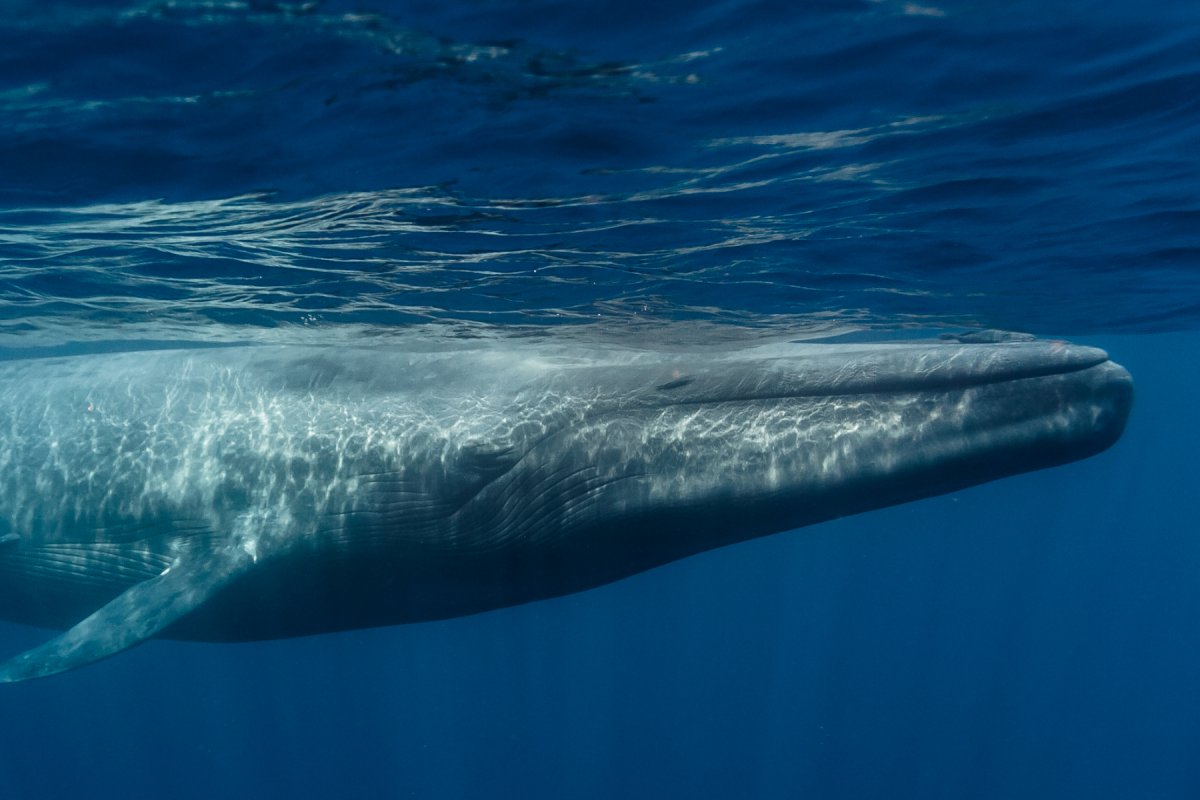Three blue whales have been snapped in the throes of passion in a rare sighting.
Two of the whales were male, and were seen racing and slamming into each other in an effort to compete for the female's affection.
This rarely observed behavior was spotted off the coast of South Australia town Port Macdonnell during an aerial survey by a team from Blue Whale Study, a local research program.
As a researcher, every so often you are blessed with a truly awesome experience watching animals. Last week during an aerial survey, we found three blue whales engaged in 'racing behaviour', in which...
"As a researcher, every so often you are blessed with a truly awesome experience watching animals. Last week during an aerial survey, we found three blue whales engaged in 'racing behavior,' in which a presumed adult female is pursued at high speed by two competing males, prospective mates. This has been confirmed by researchers in Canada, who biopsied a racing group," Blue Whale Study posted to Facebook, sharing pictures from the scene.
The researchers had only seen this phenomenon once before in this area, in 2003. This region of ocean is home to the Bonney coast upwelling, which is when cold and nutrient-rich water floods up to the ocean surface during the summer months, bringing with it a glut of plankton, and therefore attracting whales.
"The frequent changes of pace and direction were clearly dictated by the female, and the males did their best to stay close to her, while trying to outpace and physically displace each other. It was a spectacular display of massive power and grace, one of the great sights in nature. We circled for about 15 minutes, then left them alone, still racing," the Facebook post explains.

Blue whales are the largest animals known to have ever existed on Earth, reaching lengths of up to 100 feet and weighing as much as 200 tons: their hearts alone can weigh as much as a car. Blue whales are filter feeders, primarily consuming krill and plankton. They feed by taking in huge gulps of water and then using their baleen plates to filter out the krill.
Blue whales were heavily hunted during the 20th century, leading to a significant decline in their population. They are currently listed as endangered species by the International Union for Conservation of Nature Red List.
The blue whales were likely passing through from their feeding grounds in the Southern Ocean to their breeding grounds off the coast of Indonesia, pairing up as they prepared for the mating season.
The whales can travel at immense speeds during these racing behaviors, with the males slamming into one another as they chase the female.
"You've got three of these massive animals just engaged in this full-on combat between the two chasing males," Peter Gill, a researcher at Blue Whale Study, told local news ABC South East SA.
"They're shouldering each other aside and hitting each other with their tails a bit. The female's just out in front setting the pace ... she slows down when she wants to have a rest and the two boys both slow down too and trail behind her, and then she'll power off again and off they go.
"If you were in a small boat and you saw this coming towards you, you'd be well advised to start your motor and get out of the way," he said. "It'd be like being hit by a B-double truck, only much heavier—or perhaps a train's a better analogy."
Do you have a tip on a science story that Newsweek should be covering? Do you have a question about blue whales? Let us know via science@newsweek.com.
Uncommon Knowledge
Newsweek is committed to challenging conventional wisdom and finding connections in the search for common ground.
Newsweek is committed to challenging conventional wisdom and finding connections in the search for common ground.
About the writer
Jess Thomson is a Newsweek Science Reporter based in London UK. Her focus is reporting on science, technology and healthcare. ... Read more
To read how Newsweek uses AI as a newsroom tool, Click here.






